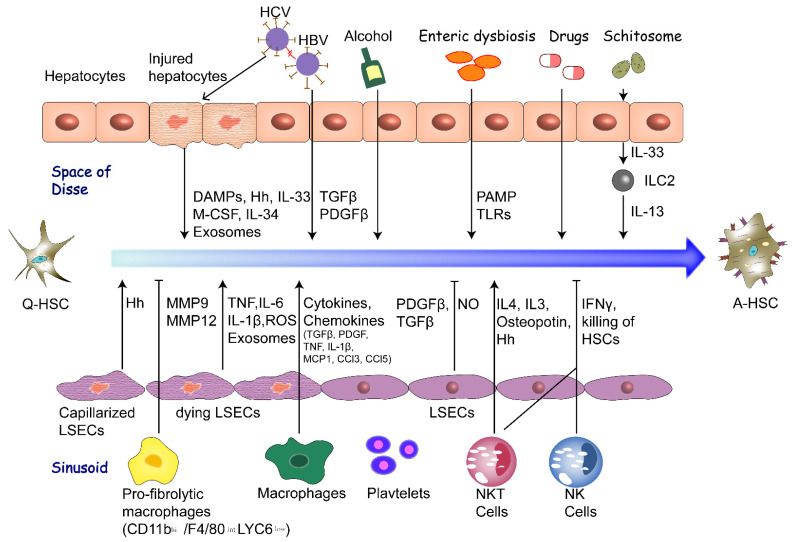Figure 1.
Extracellular factors promoting HSC activation. Extracellular factors including stimulation of various cell types, cyto-kines, altered ECM, hepatitis viral infection, enteric dysbiosis, lipid metabolism disorder, exosomes, alcohol, drugs (MTX, APAP) and schistosome promote or inhibit the activation of HSCs through production of various cytokines and other signaling molecules. The characteristics of A-HSCs include proliferation, contractility, fibrogenesis, inflammatory sig-naling, loss of retinoid and enhanced ECM production. HSC, hepatic stellate cell; DAMPs, damage-associated molecular patterns; Hh, Hedgehog signaling; IL-33, interleukin-33; M-CSF, macrophage colony-stimulating factor; TGFβ, Transforming growth factor β; PDGFβ, Platelet derived growth factor β; PAMP, pathogen-associated molecular patterns; TLRs, Toll-like receptors; MMP, matrix metalloproteinases; TNF, tumor necrosis factor; ROS, reactive oxygen species; MCP1, monocyte chemo-tactic protein-1; NO, nitric oxide; IFNγ, interferon γ; NK, natural killer; NKT, natural killer T; MTX, methotrexate; APAP, acetaminophen; hi, high expression; low, low expression; int, intermediate expression.

